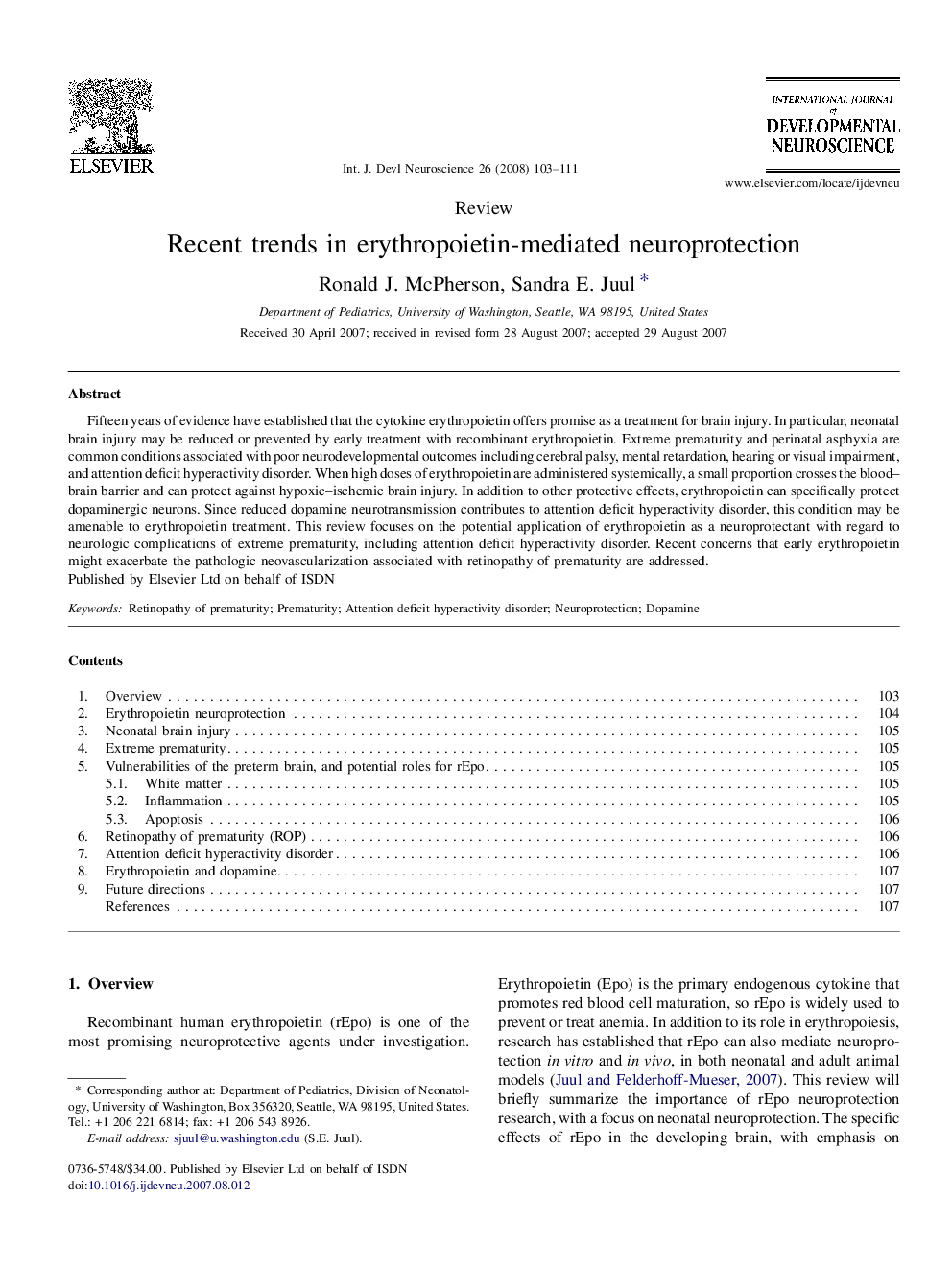| Article ID | Journal | Published Year | Pages | File Type |
|---|---|---|---|---|
| 2787135 | International Journal of Developmental Neuroscience | 2008 | 9 Pages |
Fifteen years of evidence have established that the cytokine erythropoietin offers promise as a treatment for brain injury. In particular, neonatal brain injury may be reduced or prevented by early treatment with recombinant erythropoietin. Extreme prematurity and perinatal asphyxia are common conditions associated with poor neurodevelopmental outcomes including cerebral palsy, mental retardation, hearing or visual impairment, and attention deficit hyperactivity disorder. When high doses of erythropoietin are administered systemically, a small proportion crosses the blood–brain barrier and can protect against hypoxic–ischemic brain injury. In addition to other protective effects, erythropoietin can specifically protect dopaminergic neurons. Since reduced dopamine neurotransmission contributes to attention deficit hyperactivity disorder, this condition may be amenable to erythropoietin treatment. This review focuses on the potential application of erythropoietin as a neuroprotectant with regard to neurologic complications of extreme prematurity, including attention deficit hyperactivity disorder. Recent concerns that early erythropoietin might exacerbate the pathologic neovascularization associated with retinopathy of prematurity are addressed.
